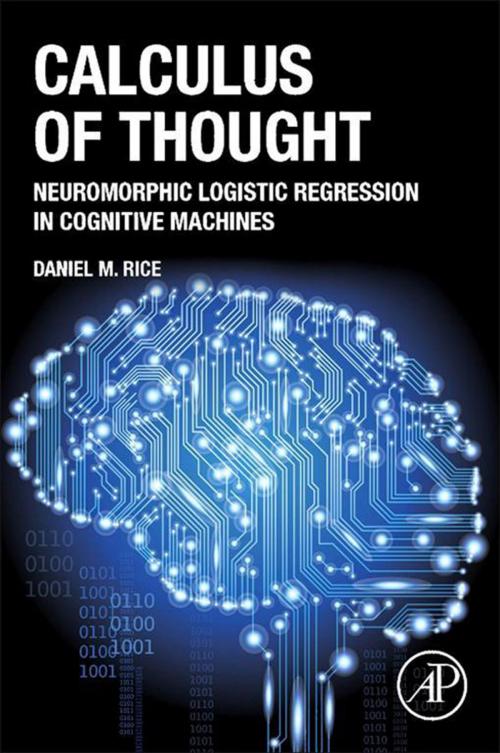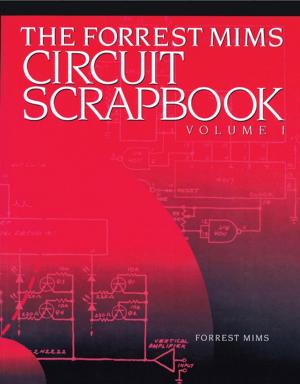Calculus of Thought
Neuromorphic Logistic Regression in Cognitive Machines
Nonfiction, Science & Nature, Mathematics, Calculus, Science| Author: | Daniel M Rice | ISBN: | 9780124104525 |
| Publisher: | Elsevier Science | Publication: | October 15, 2013 |
| Imprint: | Academic Press | Language: | English |
| Author: | Daniel M Rice |
| ISBN: | 9780124104525 |
| Publisher: | Elsevier Science |
| Publication: | October 15, 2013 |
| Imprint: | Academic Press |
| Language: | English |
Calculus of Thought: Neuromorphic Logistic Regression in Cognitive Machines is a must-read for all scientists about a very simple computation method designed to simulate big-data neural processing. This book is inspired by the Calculus Ratiocinator idea of Gottfried Leibniz, which is that machine computation should be developed to simulate human cognitive processes, thus avoiding problematic subjective bias in analytic solutions to practical and scientific problems.
The reduced error logistic regression (RELR) method is proposed as such a "Calculus of Thought." This book reviews how RELR's completely automated processing may parallel important aspects of explicit and implicit learning in neural processes. It emphasizes the fact that RELR is really just a simple adjustment to already widely used logistic regression, along with RELR's new applications that go well beyond standard logistic regression in prediction and explanation. Readers will learn how RELR solves some of the most basic problems in today’s big and small data related to high dimensionality, multi-colinearity, and cognitive bias in capricious outcomes commonly involving human behavior.
- Provides a high-level introduction and detailed reviews of the neural, statistical and machine learning knowledge base as a foundation for a new era of smarter machines
- Argues that smarter machine learning to handle both explanation and prediction without cognitive bias must have a foundation in cognitive neuroscience and must embody similar explicit and implicit learning principles that occur in the brain
Calculus of Thought: Neuromorphic Logistic Regression in Cognitive Machines is a must-read for all scientists about a very simple computation method designed to simulate big-data neural processing. This book is inspired by the Calculus Ratiocinator idea of Gottfried Leibniz, which is that machine computation should be developed to simulate human cognitive processes, thus avoiding problematic subjective bias in analytic solutions to practical and scientific problems.
The reduced error logistic regression (RELR) method is proposed as such a "Calculus of Thought." This book reviews how RELR's completely automated processing may parallel important aspects of explicit and implicit learning in neural processes. It emphasizes the fact that RELR is really just a simple adjustment to already widely used logistic regression, along with RELR's new applications that go well beyond standard logistic regression in prediction and explanation. Readers will learn how RELR solves some of the most basic problems in today’s big and small data related to high dimensionality, multi-colinearity, and cognitive bias in capricious outcomes commonly involving human behavior.
- Provides a high-level introduction and detailed reviews of the neural, statistical and machine learning knowledge base as a foundation for a new era of smarter machines
- Argues that smarter machine learning to handle both explanation and prediction without cognitive bias must have a foundation in cognitive neuroscience and must embody similar explicit and implicit learning principles that occur in the brain















